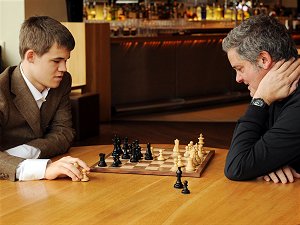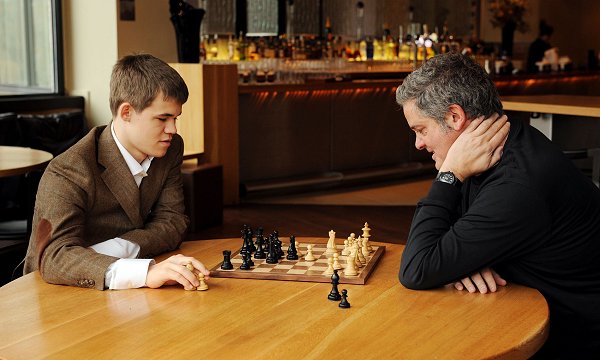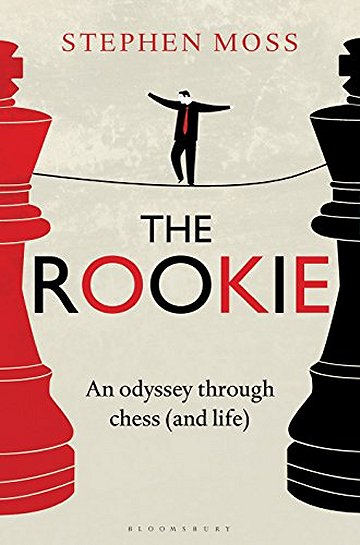



When I hit a slump in middle age, I set out on a quest to see if playing better chess would make me a better person. I was unprepared for the pain of defeat

Stephen Moss (right) wants to find out good he is at chess.
In 2009 he played against Magnus Carlsen (Photo: Linda Nylind)
By Stephen Moss, Wednesday 14 September 2016
I was probably the most average chess player in the world. But there came a point where being average was no longer enough. I had become good enough to know how bad I was. I was attached to two clubs in south-west London, Surbiton and Kingston, and was mixing with players who were very good, who had international master titles, one notch below the coveted grandmaster title. I wanted to be like them. I wanted to feel at home on the 64 squares.
I was a middle-aged man who had done OK in life, but there was something missing. I hadn’t created anything substantial; hadn’t mastered a discipline. I craved substance, and saw in chess a possible way of laying down a marker. I would become an expert, demonstrate that I wasn’t just a dilettante. After a lifetime of chess mediocrity, I set out to achieve excellence, for the first time in my life to truly master a world, to become good – not just good at chess, but at living. To get really expert I would have to be focused, disciplined, ruthless even – all the things I had found it difficult to sustain in an often rackety life.
My intermittent love affair with chess began when I was 11. ...
Read full article at the Guardian...
Stephen Moss is a feature writer at the Guardian. His book The Rookie: An Odyssey through Chess (and Life) is published by Bloomsbury.
